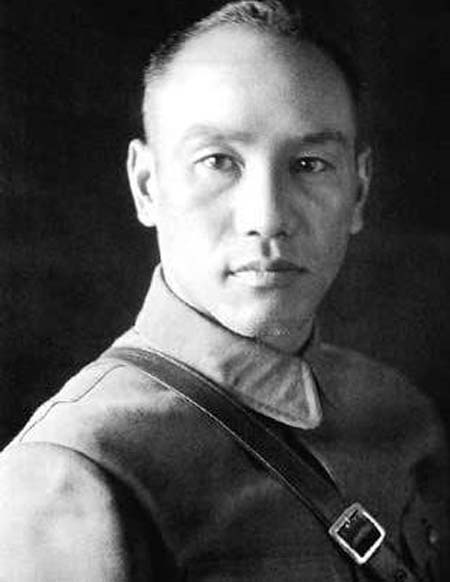Chinese politician and military leader
Overview
中文名:蒋介石
英文名称:Chiang Kai-shek;Jiang Jieshi
别名:Jiang Zhongzheng 蒋中正;Jiang Ruiwen 蒋瑞文
出生: October 31, 1887
逝世日期:April 5, 1974
成就: Recover the warlords 收复军阀
Led China to victory in the War of Resistance against Japanese Aggression 领导中国取得了抗日战争的胜利

Brief Biography of Chiang Kai-shek
Recover warlords and maintain the relative integrity of China’s territory.To some extent, Chiang Kai-shek led China to victory in the war of resistance against Japan. Chiang Kai-shek is a significant people in modern Chinese history, and his political career had a very important influence on the course of modern Chinese history.
Chiang Kai-shek was born in Fenghua village, Ningbo County, Zhejiang Province on October 31, 1887 . Before 1906, Chiang Kai-shek received feudal education in ancient China.After that, Chiang Kai-shek went to Japan to study and was influenced by his opposition to the ruling ideology of the Qing Dynasty.During his stay in Japan, Chiang Kai-shek joined the league organized by Sun Yat-sen and was appreciated by Sun Yat-sen for his participation in the democratic revolution

In July 1914, Chiang Kai-shek was rushed to Shanghai and Harbin to assist Chen Qimei in his revolutionary activities against yuan Shikai.
In February 1925 Chiang Kai-shek crusade against Chen Jiongming, in June pacified Yang Ximin, Liu Zhenhuan rebellion and other campaigns, outstanding results, so gained a reputation, first as Chaoshan rehabilitation supervision, and then Guangzhou garrison commander.
In February 1926 he was also commander-in-chief of the national revolutionary army.
Chiang Kai-shek founded the national government in Nanjing on April 18, 1927
In December 12, 1936, Chiang Kai-shek was detained in Xi’an during the Xi’an incident.
After the July 7th incident in 1937, Chiang Kai-shek finally established the Kuomintang-communist Anti-Japanese national united front.
Civil war broke out in 1946.
Chiang Kai-shek defeated Taiwan in December 1949.
On April 5, 1975, Chiang Kai-shek died of a heart attack in Taipei.
Chiang Kai-shek’s contribution to the war of resistance against Japan
After the Xi’an incident, Chiang Kai-shek was forced to end the ten-year civil war and carry out the second cooperation with the communist party.After the July 7th incident in 1937, the Kuomintang-communist Anti-Japanese national united front was finally established. Chiang Kai-shek actively deployed and directed the Chinese troops to the front lines in North China and Shanghai to resist the invading Japanese forces.

He has commanded the battle of Shanghai, Taiyuan, Xuzhou, Wuhan and other major battles.By October 1938, the Japanese Army had killed more than 450,000 people, crushing the strategic plan of the Japanese imperialists to make a quick decision and quickly destroy China.
After the Pacific War broke out in December 1941, Chiang Kai-shek actively carried out diplomatic activities, and the United States, the British alliance, as the commander-in-chief of the Chinese war zone, received U.S. material and financial assistance.
In order to unite China against Japan, the United States and Britain signed a ” new treaty ” between China, the United States and Britain, promising to abolish the privileges in China under the unequal treaties.
Chiang Kai-shek’s construction of Taiwan
Local autonomy is of epoch-making significance in the history of the republic of China.
Land reform promoted the revival of Taiwan’s rural areas and realized Sun Yat-sen’s ideal of equal land rights.
Chiang Kai-shek popularized national education, implemented nine-year compulsory education, expanded higher education and improved Taiwan’s human quality.
The thoughts of Chiang Kai-shek
To practice the three people’s principles, to revive national culture, to adhere to the line-up of democracy, for the purpose of my life, that is, the revolutionary will and fighting determination of our compatriots at home and abroad.
An inch of mountains and rivers an inch of blood, 100,000 young 100,000 army.一寸河山一寸血,十万青年十万兵。
Youth is the Vanguard of the times, youth is the focus of the times, any era of innovation and rejuvenation, all young people as the main force, as the core.